Anima Launches Employee Mental Wellness Tracker to Revolutionize Workplace Mental Health
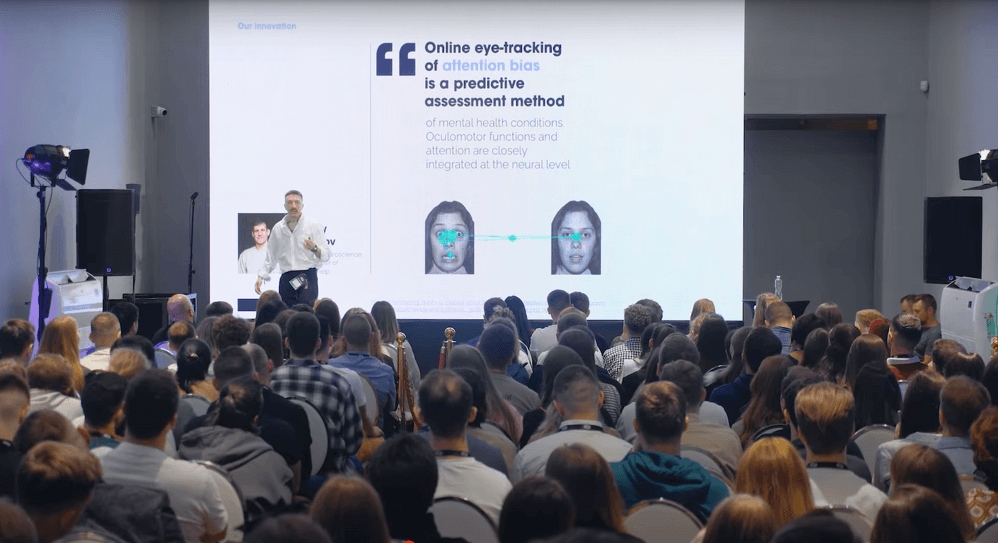
Deloitte’s "Mental Health and Employers" 2022 report estimates that the overall cost of poor mental health to UK employers in 2020-21 was $66.41 - $70.17 billion, primarily driven by absenteeism, presenteeism (working while unwell), and labor turnover. Alarmingly, nearly 40% of turnover costs now stem from mental health issues, underscoring the need for proactive interventions.
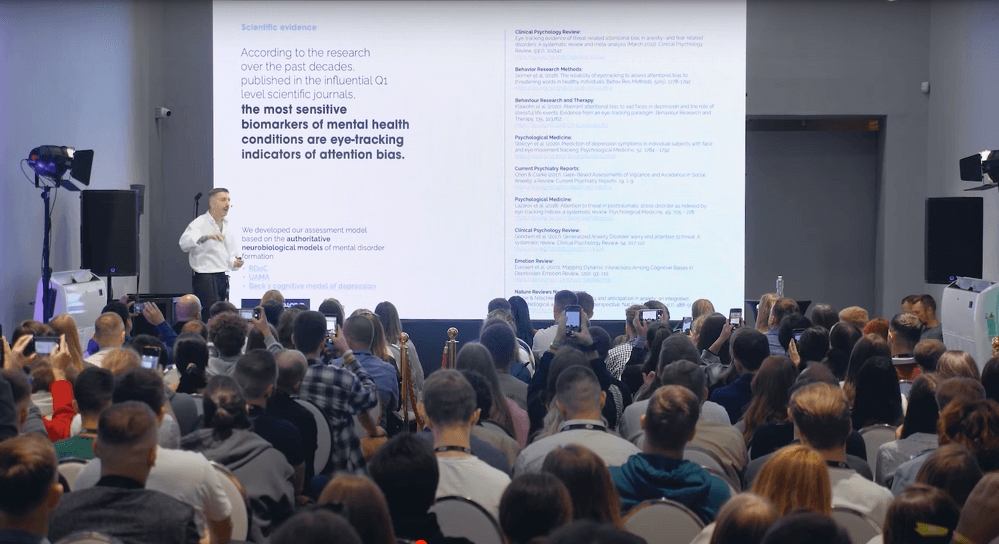
But there’s good news: the return on investment (ROI) for mental health initiatives averages 430%. Programs that address burnout, stress, and overall well-being are not just ethical imperatives—they’re financial no-brainers. For screening interventions, the Report states average ROI is even higher – 530%. For HR professionals, this highlights the strategic importance of embedding screening interventions at the heart of workforce mental wellness initiatives.
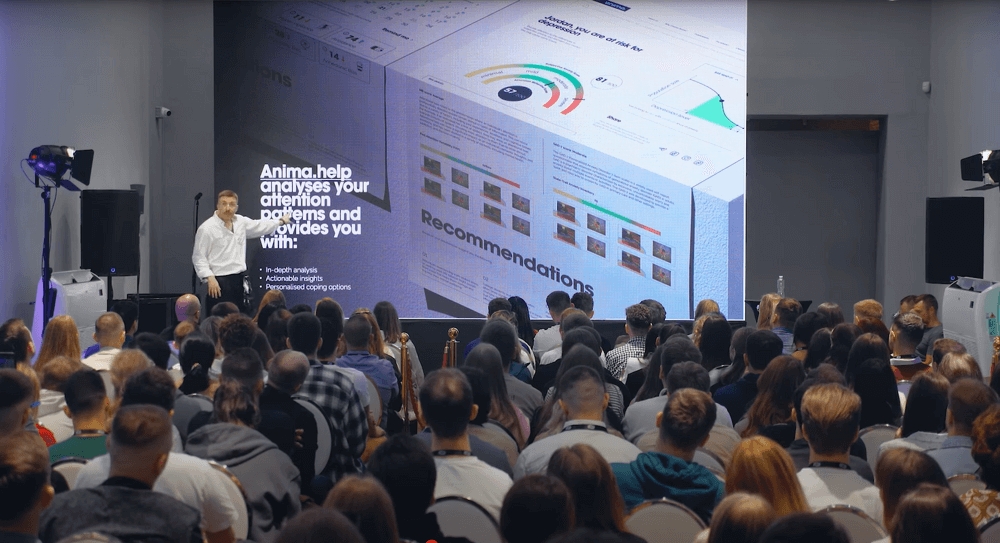
Why Traditional Approaches Fall Short
Despite increased awareness, many employers rely on reactive measures like employee assistance programs (EAPs). While helpful, these solutions often fail to address the root causes of mental distress or provide actionable insights for long-term change. As Deloitte’s report emphasizes, targeted and personalized interventions yield better outcomes, particularly for vulnerable employee groups such as young professionals, caregivers, and ethnic minorities.
Enter Anima: A Data-Driven Revolution in Mental Health
Anima’s innovative approach bridges this gap by offering:
- Accurate Screening: Using eye-tracking technology, Anima identifies subtle attention and cognitive biases that traditional surveys overlook. This precision minimizes misdiagnosis and enhances the relevance of interventions.
- Actionable Insights: Organizational and departmental reports provide granular data on stress and burnout levels, empowering organizations to deploy targeted solutions.
- Tailored Communication: Anima’s anonymous yet personalized messaging ensures individuals receive the support they need while maintaining their privacy.
- AI-Powered Chatbot Support: Anima’s AI-driven chatbot offers employees real-time access to mental health resources, personalized coping strategies, and conversational support. By integrating neuropsychological data from the eye-tracking assessments, the chatbot provides uniquely relevant and empathetic responses, fostering continuous engagement and support. Demographic Insights Young Employees (18-29):
According to Deloitte, 65% of employees in this age group who left their jobs cited poor mental health as a key factor, highlighting the critical need for tailored mental health support.
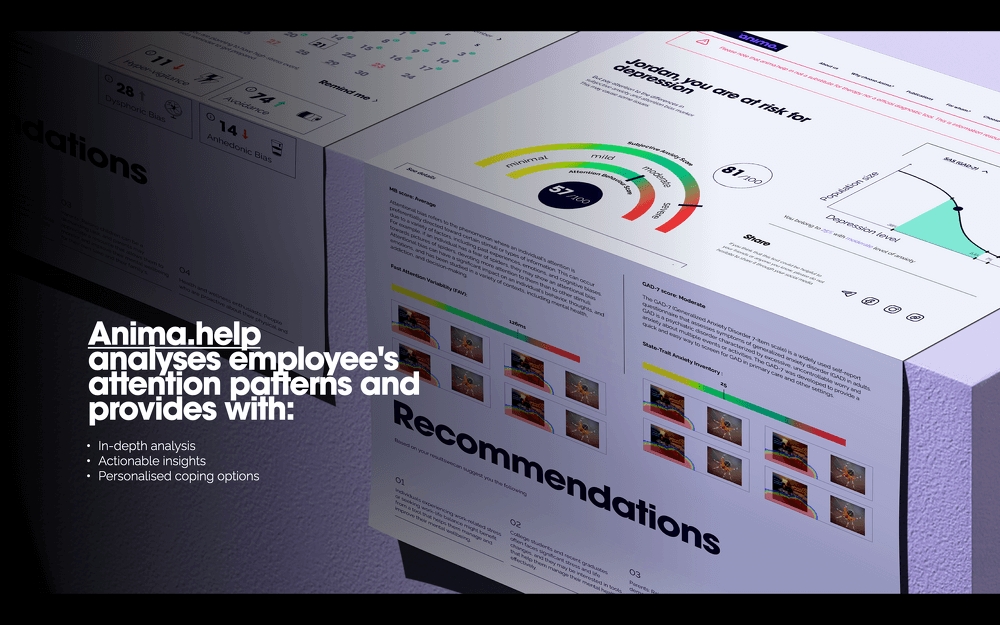
Aligning with Future Workforce Expectations
The pandemic has reshaped employee expectations, with over 60% of US workers expressing a desire for greater mental health support from their employers. Furthermore, younger employees (aged 18-29) are particularly vulnerable, with two-thirds considering job changes due to mental health concerns. For HR leaders, this demographic shift underscores the urgency of proactive and innovative strategies.
Practical Steps for HR Leaders
To capitalize on the clear ROI and employee benefits of mental health investments, HR professionals should:
1. Implement Regular Screenings: Tools like Anima’s eye-tracking assessments provide ongoing visibility into workforce well-being.
2. Leverage Data-Driven Insights: Use analytics to identify high-risk groups and tailor interventions accordingly.
3. Promote a Culture of Openness: Reduce stigma by normalizing conversations around mental health and providing management training on empathetic leadership.
4. Integrate AI Solutions: Utilize AI chatbots to offer scalable, immediate, and personalized mental health support for employees.
5. Measure Impact: Continuously assess the effectiveness of mental health programs and refine them based on employee feedback and outcomes.
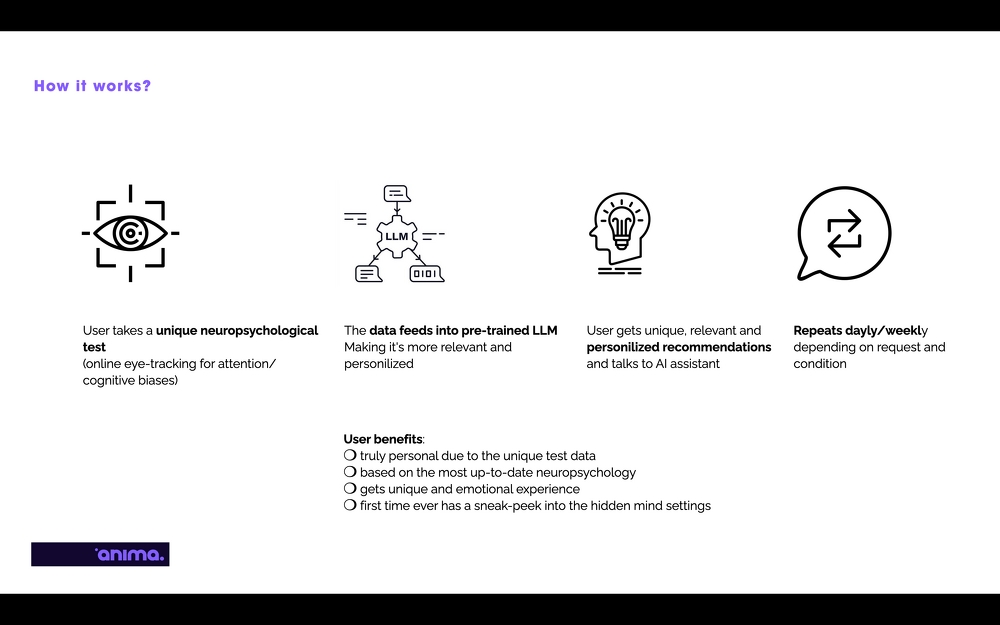
Final Thoughts
The workplace of tomorrow demands more than reactive solutions; it requires foresight, innovation, and a commitment to holistic well-being. By embracing cutting-edge tools and aligning strategies with robust research, HR leaders can not only mitigate the financial and human costs of poor mental health but also unlock the full potential of their workforce.
Anima’s mission aligns perfectly with this vision, offering a scalable, data-driven approach to mental health that addresses individual and organizational needs alike. Together with insights from Deloitte’s report, HR leaders have the tools they need to turn mental health challenges into opportunities for growth and resilience.
Invest in employee mental well-being today—because a thriving workforce is the foundation of a thriving organization.
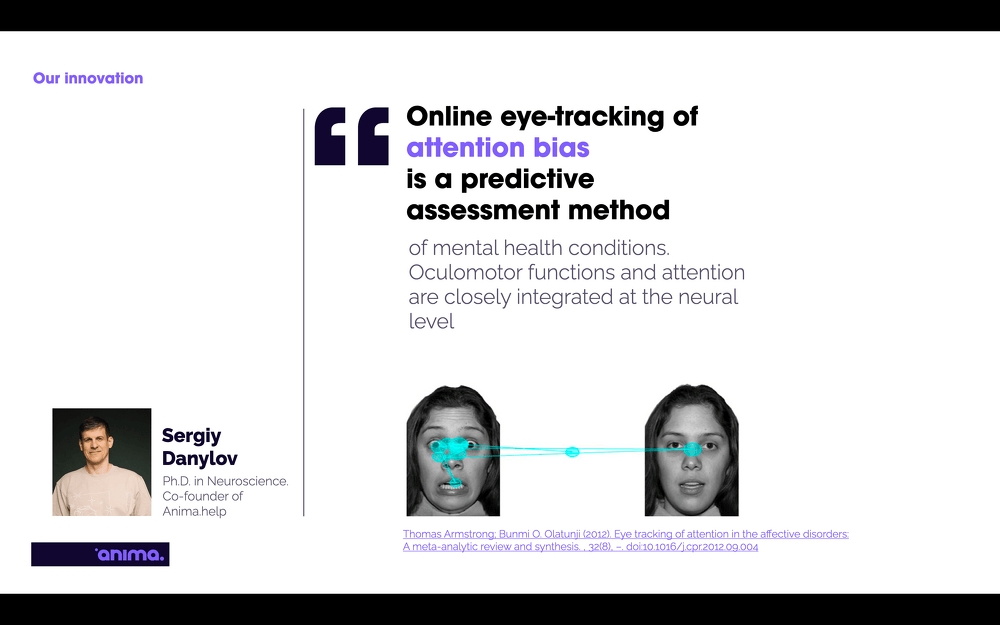
Information contained on this page is provided by an independent third-party content provider. XPRMedia and this Site make no warranties or representations in connection therewith. If you are affiliated with this page and would like it removed please contact [email protected]

